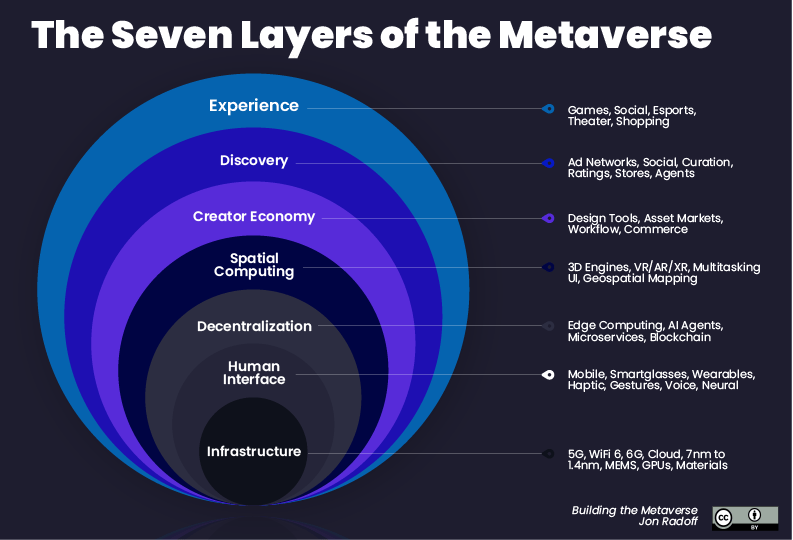Comments
- No comments found

The metaverse has quickly turned from a profitable utopia into a cash-guzzling dystopia.
In recent years, the concept of the "metaverse" has gained increasing attention and hype in the tech industry.
Prominent figures in the tech world, such as Facebook's Mark Zuckerberg and gaming company Roblox's CEO David Baszucki, have touted the potential of a fully-realized metaverse, where people could interact in a virtual world that could potentially rival the physical one.
Despite the buzz and hype, the reality is that the metaverse has not taken off in the way that many had predicted. In fact, it could be argued that the metaverse has failed to materialize altogether. This article explores why the metaverse has not yet lived up to its hype and whether it ever will.

Source: Jon Radoff
Before diving into why the metaverse has failed to take off, it's important to first define what exactly the metaverse is. The metaverse refers to a fully-realized virtual world, where users can interact with each other in a virtual environment that could potentially rival the physical world. It is essentially a world of worlds, where users could engage in various activities such as gaming, socializing, and shopping.
The concept of the metaverse has been around for decades, with science fiction writers such as William Gibson and Neal Stephenson exploring the idea in their works. However, it was not until recently that the concept gained mainstream attention, largely due to the emergence of virtual and augmented reality technologies.

Despite the hype and excitement surrounding the metaverse, the reality is that it has not yet taken off in the way that many had predicted. There are several reasons for this.
One of the biggest barriers to the development of the metaverse is the lack of interoperability between different virtual worlds. In other words, different virtual worlds are currently unable to interact with each other, which limits the potential of the metaverse as a truly interconnected virtual world. This lack of interoperability is due in part to the fact that different virtual worlds are often developed by different companies with their own proprietary technology and standards.
Another reason why the metaverse has failed to take off is limited adoption. While virtual reality and augmented reality technologies have been around for some time, they have yet to become mainstream. Many people are still hesitant to adopt these technologies, either due to cost or concerns about privacy and security.
In addition, even among those who do use virtual reality and augmented reality technologies, there is no clear consensus on what the metaverse should be or how it should function. This lack of a unified vision has made it difficult for the metaverse to gain traction.
Finally, there are also technical limitations that have hindered the development of the metaverse. For example, current virtual and augmented reality technologies are still limited in terms of their graphical fidelity and processing power. This makes it difficult to create truly immersive virtual environments that can rival the physical world in terms of realism and interactivity.

The metaverse is doomed to fail because it never lived up to the expectations. It's worth noting that while the metaverse as a fully-realized virtual world may not yet exist, many of the technologies that would be required to make it a reality are already being developed.
Advances in artificial intelligence and machine learning could help to create more immersive and interactive virtual environments. In addition, the rise of blockchain technology could potentially help to address the issue of interoperability between different virtual worlds, by providing a secure and decentralized way for different virtual worlds to interact with each other.
Leave your comments
Post comment as a guest